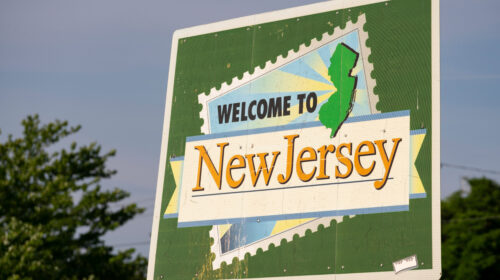Key Tax Provisions in NJ’s Fiscal Year 2022 Budget

Key tax relief components of the Fiscal Year 2022 Budget include, but are not limited to:
- Middle Class Tax Rebate: In Fiscal Year 2022, over 760,000 New Jersey families will receive an up to $500 tax rebate due to the Millionaires Tax enacted by the Governor and the Legislature last fall. Families will receive these rebates over the summer. The estimated program cost is $319 million.
- Updating the Homestead Benefit Base Year to 2017: The Fiscal Year 2022 Appropriations Act will update Homestead Benefit payments so that they are based on 2017 property tax information, which is the most recent payment information available, instead of 2006 records. This change is estimated to increase the average benefit for seniors and disabled homeowners by over $130 and the average benefit for lower-income homeowners by $145. The estimated program cost is nearly $80 million.
- Child and Dependent Care Credit (CDCC) Expansion: This budget proposes expanding the CDCC that the Governor and Legislature enacted in 2018 so that it is both available for families making up to $150,000 and refundable. This change will benefit over 80,000 more families, and increase the average credit for those making under $30,000 to $277. The estimated cost is $17 million.
- Extending the Veterans Property Tax Deduction to Peacetime Veterans: The Appropriations Act will support the expanded deduction approved through the 2020 ballot measure. The estimated cost is $15 million.
- Expanding the Earned Income Tax Credit (EITC) Age of Eligibility of 21 to 18 and to Those Over Age 65: The Governor and the Legislature have provided meaningful middle-class tax relief by boosting the EITC from 35 percent to 40 percent since 2018. Last year, the Governor led on expanding eligibility to an additional 60,000 New Jersey residents by lowering the minimum age from 25 to 21. In Fiscal Year 2022, Governor Murphy and the Legislature will expand eligibility to those 65 and older without dependents and to those as young as 18, which is projected to help another 90,000 residents – roughly 70,000 over 65; and 20,000 between the ages of 18 and 21. The estimated foregone revenue cost is $13 million.
- Education Deductions: The budget agreement includes legislation that creates new tax deductions for:
-
- contributions of up to $10,000 into an NJ Better Education Savings Trust (NJBEST) 529 account for households earning up to $200,000;
- contributions up to $10,000 for in-state tuition payments for households earning up to $200,000; and
- payments of interest and principal toward New Jersey College Loans to Assist State Students (NJCLASS) of up to $2,500 per year for households earning up to $200,000.
- Retirement Income Exemption: The agreement also includes legislation that will raise the amount of retirement income that can be excluded annually from taxation, including pensions, annuities, and other specified retirement income. Currently, only retirement income up to $100,000 is excluded from taxation. Currently, taxpayers who earn even $1 over $100,000 must pay taxes on the entire amount. By increasing the income exclusion threshold up to $150,000, those with income between $100,000 and $125,000 will be eligible for up to 50% of the maximum deduction of $100,000, depending on their filing status. Taxpayer with income between $125,000 and $150,000 will be eligible for up to 25% of the maximum deduction of $100,000, depending on their filing status.